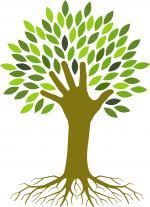|
This section contains 3,430 words (approx. 12 pages at 300 words per page) |

|
In anthropology the term indigenous refers to small-scale societies with distinct languages, mythic narratives, sacred places, ceremonies, and kinship systems. Over 500 million people are considered indigenous; they live on every continent (except Antarctica) as well as in the Pacific Rim. They are known as First Nations (Canada), Adivasi (India), Orang Asli (Malaysia), Igorot (Philippines) and Indians or Native Americans (the Americas). Unfortunately these native societies are often marginalized within the larger culture; their existence is also threatened by the exploitation of corporations and extractive industries (such as fossil fuels and mining). Any discussion of indigenous traditions and ecology must necessarily involve political issues of cultural and biodiversity survival. Each indigenous society is unique, and a study of one regional community cannot be extrapolated to represent others. Each society has its own cosmological understanding of nature and its own regional, cultural, and historical...
|
This section contains 3,430 words (approx. 12 pages at 300 words per page) |

|




